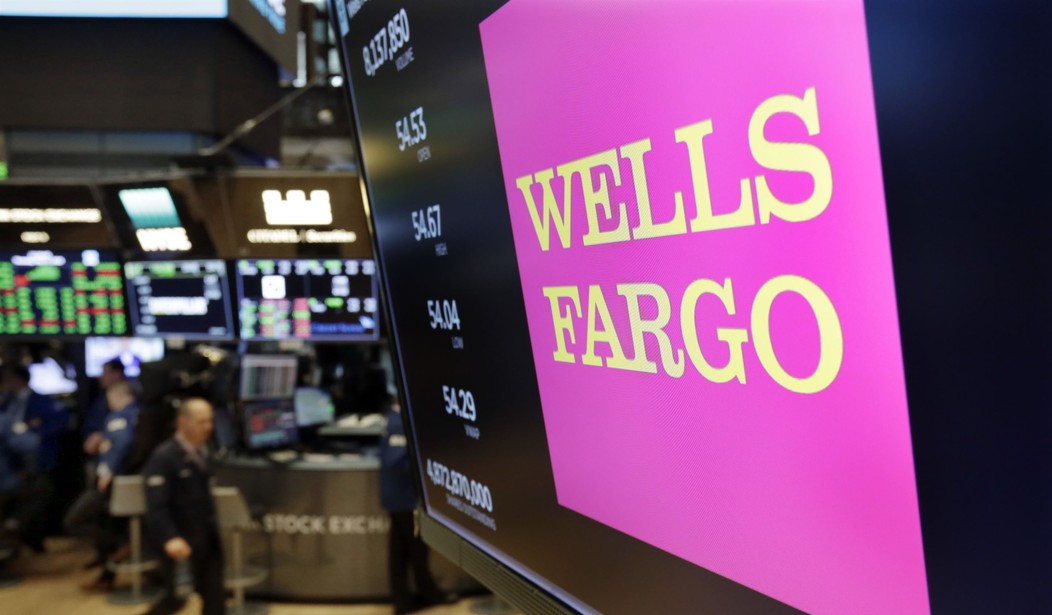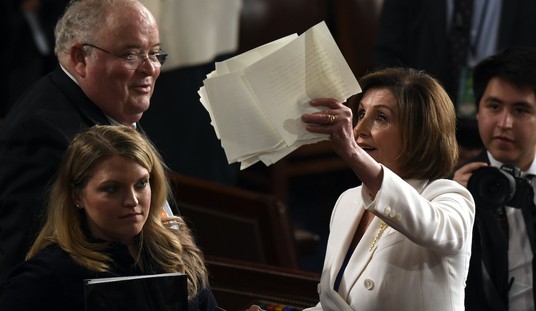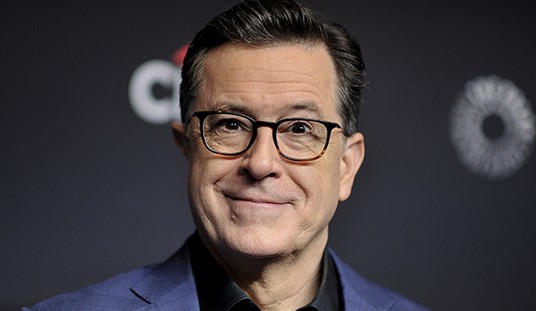The late, great Andrew Breitbart famously said, "Politics is downstream from culture," and I will not presume to debate his wisdom in this or anything else. But, as I have routinely added, culture is downstream from economics. Economic issues always win through in the end; in the end, people will always act in their own financial self-interest, barring a few irrational lunatics.
It was in large part due to complaints from irrational lunatics that financial institutions like Goldman Sachs and Wells Fargo entered the "Net Zero Banking Alliance." Climate scolds pushed this unholy alliance, but now reality is setting in, and those institutions are quietly pulling out.
The Manhattan Contrarian's Francis Menton has the details.
Less than three weeks ago, on December 23, in a post on optimism about the potential demise of the green energy fantasy, I took note that two of the largest U.S. banks had just quit something called the “Net Zero Banking Alliance.” The two were Goldman Sachs and Wells Fargo. These two banks, along with many others, including all of the biggest ones, had joined the NZBA as it was getting organized under auspices of the UN back in 2021. NZBA, together with other related groups organized around the same time, aspired to be cartels of financial institutions that would save the planet by starving hydrocarbon fuels of all investment capital, while re-directing the money to the “green” energy transition. Now, shortly after the re-election of Donald Trump, two of the biggest banking giants had decided to exit. Could this be a sign that the zero-carbon green energy fantasy was losing its grip?
I'd prefer to think it was just a matter of reality setting in, rather than the reelection of Donald Trump. Banks, like all businesses, exist to return a profit to their shareholders, and engaging in pie-eyed nonsense like the Net Zero Banking Alliance just makes that more difficult. And the exit from the Alliance is growing legs.
In the short 19 days since that post, the trickle of resignations from the NZBA and related groups has turned into an avalanche. In the blink of an eye, what once seemed a serious threat that hydrocarbon fuels could be snuffed out by a group boycott of investors has almost entirely gone away.
It's nice to see a bit of good news once in a while.
See Related: Why Does Britain Have the Developed World's Highest Electricity Prices?
Here's where it gets interesting: the Net Zero Banking Alliance was in large part the brainchild of a dude named Mark Carney, a Canadian Liberal Party politician. The Alliance formed at the UN "Conference of Parties" in Glasgow in 2021, and Carney as well as then-Prime Minister of the UK Boris Johnson, also a climate panic-monger, were among the people jetting off to that confab and who came up with something called the Glasgow Financial Alliance for Net Zero (GFANZ). The purpose? To push big banking interests to push financing away from traditional energy sources (fossil fuels, nuclear power) and to support "decarbonization."
Mark Carney was appointed as the chair of GFANZ. Former NYC Mayor Mike Bloomberg, also a climate scold, became Co-Chair. The Net Zero Banking Alliance (NZBA) and something called the Net Zero Asset Managers Initiative (NZAMI) were formed at the same time.
That was then. This is now.
The exits from the NZAB of Goldman Sachs and Wells Fargo in early December quickly opened the barn doors for the other big players to rush out. On December 31, Reuters reported that Citibank and Bank of America had just quit the NZAB. Morgan Stanley announced its exit on January 2. JP Morgan quit on January 7. These six big banks among them have a market share of more than 25% of the entire U.S. banking industry.
And then, just yesterday, the largest asset manager in the country, BlackRock, quit the NZAMI. Of the three largest asset managers, another one, Vanguard, had already quit back in 2022. That leaves only State Street remaining, of the big three.
Confusing, perhaps, but the trendline is at least inclined the right way.
But we haven't seen the last of Mark Carney yet. As a Canadian Liberal politician in the era of the failed but impeccably coiffed Justin Trudeau, Carney is poised to become one of, if not the leader of the Canadian Liberals, and therefore a candidate to replace Trudeau as prime minister. It's a small chance - the Liberals are expected to take a real beating in the Canadian elections later this year. But he's not going away, and as a government official, he won't stop trying to stick his finger in the world of international finance.
Economics always wins in the end. It's good to see the big banking community acknowledging reality - at least, until the next spun-up crisis du jour comes along.















